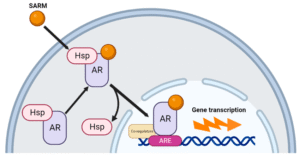
Urgent care centers have become a critical component of the healthcare system. These centers provide immediate care for non-life-threatening conditions. They bridge the gap between emergency rooms and primary care physicians.
Importance of Urgent Care
Urgent care centers offer extended hours and walk-in appointments. This accessibility makes them a convenient option for many patients. They handle a variety of medical issues, from minor injuries to illnesses.
The Role of Doctors in Urgent Care
Doctors are the cornerstone of urgent care centers. They provide diagnosis, treatment, and follow-up care. Their expertise ensures that patients receive appropriate medical attention.
Quick Decision Making
Urgent care doctors must make quick, accurate decisions. They often work under pressure and with limited patient history. Their ability to quickly diagnose and treat conditions is vital.
Broad Medical Knowledge
Doctors in urgent care need a broad range of medical knowledge. They encounter diverse medical issues daily. This requires them to be well-versed in many aspects of medicine.
Patient Interaction
Patient interaction is a key part of a doctor’s role in urgent care. They must communicate effectively with patients. Clear communication helps in understanding symptoms and explaining treatments.
Diagnostic Skills
Doctors in urgent care rely heavily on their diagnostic skills. They must interpret symptoms and medical history quickly. Accurate diagnosis is crucial for effective treatment.
Treatment and Management
After diagnosis, doctors provide treatment and management plans. This can include prescribing medication, setting fractures, or stitching wounds. Their goal is to provide immediate relief and plan for recovery.
Handling Emergencies
Although urgent care centers are not emergency rooms, doctors must be prepared for emergencies. They need to stabilize patients and arrange for transfer to an emergency room if necessary.
Coordination with Other Healthcare Providers
Doctors in urgent care often coordinate with other healthcare providers. They may refer patients to specialists or communicate with primary care physicians. This ensures continuity of care.
Use of Technology
Technology plays a significant role in urgent care. Doctors use electronic health records and diagnostic tools. These technologies help in quick and accurate patient care.
Patient Education
Educating patients is another important role for urgent care doctors. They provide information on managing conditions and preventing future health issues. Education is a key part of treatment and recovery.
Handling Diverse Patient Populations
Urgent care centers serve a diverse patient population. Doctors must be sensitive to different cultural backgrounds and health beliefs. This helps in providing effective and respectful care.
Challenges Faced by Urgent Care Doctors
Urgent care doctors face numerous challenges. High patient volumes and diverse medical issues can be demanding. Despite these challenges, they provide essential healthcare services.
The Growing Demand for Urgent Care
The demand for urgent care services is growing. More patients are seeking immediate care for non-emergency conditions. This trend highlights the vital role of urgent care doctors.
Future of Urgent Care
The future of urgent care looks promising. Advances in medical technology and increased demand for immediate care services are driving growth. Urgent care doctors will continue to play a crucial role.
Conclusion
Doctors in urgent care centers are vital to the healthcare system. Their ability to provide immediate, effective care is essential. As the demand for urgent care grows, so will the importance of these dedicated physicians.





